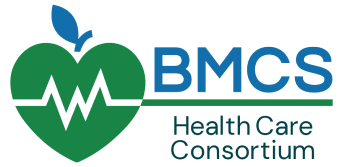February 15, 2024
As February is American Heart Month, we are sharing some Heart Smart Basics.
Heart disease is the leading cause of death in the United States, but it can often be prevented. Adopting a heart-healthy lifestyle can help you reduce the risk of heart disease and its risk factors. Take action to protect your heart by following these tips.
Get Enough Quality Sleep
Lack of sleep or getting poor-quality sleep increases the risk of having high blood pressure, heart disease, and other medical conditions.
- Try to aim for 7-9 hours of sleep a night.
- Go to bed and wake up at the same time each day.
- Exercise regularly, but not within 2-3 hours before bedtime.
- Avoid caffeine and nicotine.
Maintain a Healthy Weight
Maintaining a healthy weight is important for overall health and can help you prevent and control many diseases and conditions.
- Choose healthy snacks like fruits, vegetables, yogurt, or nuts, instead of sugary or high-calorie snacks.
- Stay hydrated with water as your primary beverage.
- Aim for at least 150 minutes of moderate-intensity aerobic exercise (such as brisk walking) or 75 minutes of vigorous-intensity (like running) exercise per week.
- Consider keeping a log of what you eat throughout the day.
Be More Active
- Getting enough physical activity helps to lower your risk of heart disease and stroke.
- Adults should spend at least 150 minutes (2 ½ hours) each week doing physical activity.
- Sit less! Take the stairs. Park farther away. March in place or take a walk around the block.
- Try muscle-strengthening activities like lifting weights, working with resistance bands, doing sit-ups and push-ups, or some forms of yoga—whatever works for you.
- If you don’t have a lot of time in your day, try being active for 10 minutes at a time. Anything that gets your heart beating faster counts!
Learn More!
Take Action for Your Heart: Get Started!
Heart disease is the leading cause of death in the United States, but it can often be prevented. Adopting a heart-healthy lifestyle can help you reduce the risk of heart disease and its risk factors. Take action to protect your heart by following these tips.
Get Enough Quality Sleep
Lack of sleep or getting poor-quality sleep increases the risk of having high blood pressure, heart disease, and other medical conditions.
- Try to aim for 7-9 hours of sleep a night.
- Go to bed and wake up at the same time each day.
- Exercise regularly, but not within 2-3 hours before bedtime.
- Avoid caffeine
and nicotine.
Eat Better
A flexible and balanced eating plan can help lower your high blood pressure and improve your cholesterol.
- Follow the Dietary Approaches to Stop Hypertension (DASH) eating plan, which can help you create a heart-healthy eating style for life.
- Read nutrition labels to pick the food lowest in saturated fat, sodium, and added sugars.
- Try a mix of lean cuts of meat, eat fish once or twice a week, and eat two or more meatless meals each week.
- Consider whole fruits, dried fruits, unsalted rice cakes, fat-free and low-fat yogurt, or raw vegetables as a snack.
Stop Smoking
Any amount of smoking, even light or occasional smoking, damages your heart and blood vessels.
- Select a quit date and write yourself a contract that outlines your plan for quitting.
- Talk with your healthcare provider about programs and products that can help you quit.
- Join a support group. Many hospitals, workplaces, and community groups offer classes to help people quit smoking.
- Call 1–800–QUIT–NOW and visit smokefree.gov to get additional support.
Control Cholesterol
Unhealthy levels of cholesterol can lead to high cholesterol, which increases the risk of developing heart disease.
- Try the Therapeutic Lifestyle Changes (TLC) Program which combines diet, physical activity, and weight management to help lower high blood cholesterol and improve heart health.
- Eat a heart-healthy diet that is low in saturated fats, as these can raise LDL cholesterol levels.
- Limit alcohol consumption. Drinking too much alcohol—more than two drinks a day for men or one drink a day for women—can raise your total cholesterol level.
Manage Stress
Learning how to manage stress with healthy coping strategies helps improve your emotional and physical health.
- Use relaxation techniques that combine breathing and focused attention on pleasing thoughts and images to calm the mind and body.
- Consider meditation, as it can help to lower stress.
- Take a yoga class to help lower stress and improve mindfulness. It may also offer you a supportive community.
Maintain a Healthy Weight
Maintaining a healthy weight is important for overall health and can help you prevent and control many diseases and conditions.
- Choose healthy snacks like fruits, vegetables, yogurt, or nuts, instead of sugary or high-calorie snacks.
- Stay hydrated with water as your primary beverage.
- Aim for at least 150 minutes of moderate-intensity aerobic exercise (such as brisk walking) or 75 minutes of vigorous-intensity (like running) exercise per week.
- Consider keeping a log of what you eat throughout the day.
Be More Active
Getting enough physical activity helps to lower your risk of heart disease and stroke.
- Adults should spend at least 150 minutes (2 ½ hours) each week doing physical activity.
- Sit less! Take the stairs. Park farther away. March in place or take a walk around the block.
- Try muscle-strengthening activities like lifting weights, working with resistance bands, doing sit-ups and push-ups, or some forms of yoga—whatever works for you.
- If you don’t have a lot of time in your day, try being active for 10 minutes at a time. Anything that gets your heart beating faster counts!
Manage Blood Sugar
Maintaining stable blood sugar levels is crucial for heart health, especially for people with diabetes or those at risk of developing diabetes.
- Eat a diet rich in whole foods, including vegetables, fruits, whole grains, lean proteins, and healthy fats.
- Monitor your carbohydrate intake and choose complex carbohydrates, like whole grains and legumes, to help control blood sugar levels.
- Talk to your healthcare provider about how often you should check your blood sugar levels, especially if you have diabetes.
Control Blood Pressure
Keep your blood pressure in a healthy range and keep track of your numbers. Blood pressure that’s consistently higher than 130/80 mm Hg can cause serious health problems.
- Have your blood pressure checked each time you visit the doctor.
- Use a blood pressure monitor to measure your blood pressure at home and learn how to measure it correctly.
- Use a blood pressure tracker to keep a record of your numbers each reading.
- If you’re pregnant or planning to be, it’s especially important to keep your blood pressure in a healthy range.
Practice Self-Care & Find Social Support
Daily acts of self-care can benefit your heart because self-care is heart care. Studies show that having positive social support, close relationships, and feeling connected to others makes it easier to stick to heart-healthy habits.
- Try to do at least one positive action for your heart health each day.
- Make the doctor’s appointment you’ve been putting off.
- Ask family and friends to text you reminders or encouragement to help you meet your health goals.
- Join an exercise class or a weight management group to connect with other like-minded people and stay motivated.
For more information about how you can take action to keep your heart healthy, visit hearttruth.gov
This information was provided by the National Heart, Lung, and Blood Institute. NIH Publication No. 24-HL-8218 January 2024.

The Bucks and Montgomery County Schools Health Care Consortium
www.bmshc.org
Benefits Basics is intended for distribution to members enrolled in the Bucks and Montgomery County Schools Health Care Consortium insurance plan. The Summary Plan Description available at the website provides full details of all coverage including exceptions and limitations.



